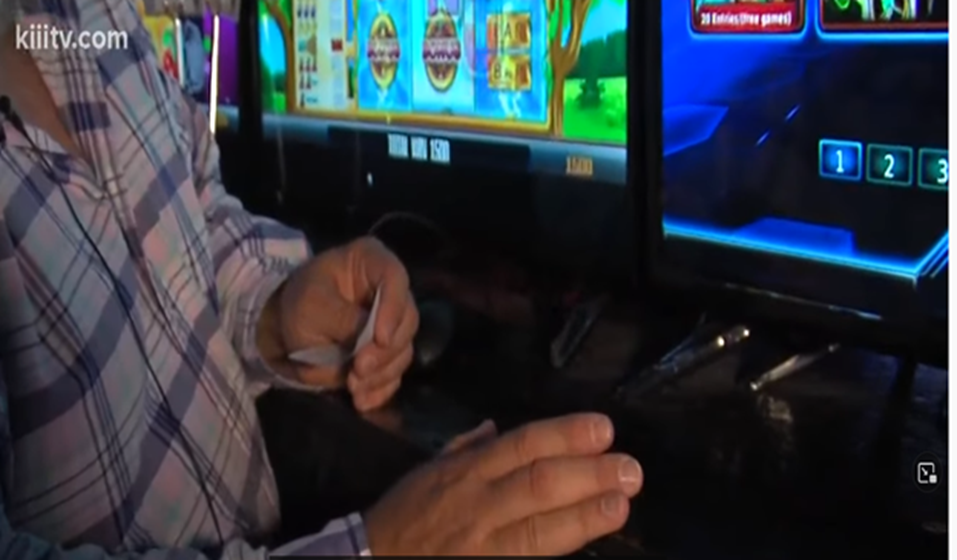
By L.A. Williams
Christian Action League
February 16, 2022
It appears to be “game over” for some electronic sweepstakes operators in North Carolina, as the state Supreme Court ruled Feb. 11 that their games are predominantly about chance rather than skill and are banned in the Tar Heel state.
“This proves beyond a shadow of a doubt that sweepstakes gaming in this state is illegal,” said the Rev. Mark Creech, executive director of the Christian Action League. “Wherever sweepstakes parlors are still in operation, sheriffs and district attorneys should shut these places down.”
The most recent ruling came after Gift Surplus LLC and Sandhill Amusements filed suit against the state, Gov. Roy Cooper, SBI director Bob Schurmeier and other high-level officials, hoping that the court would declare that their latest version of sweepstakes games — tweaked ever so slightly from previous machines — met the letter of the law.
But Justice Robin Hudson wrote that the Court finds “chance predominates over skill in plaintiffs’ new game and, accordingly, that this game is a game of chance that violates the sweepstakes statute.” She pointed out that the case was the third time plaintiffs had appeared before the Court seeking to sidestep North Carolina’s ban on video sweepstakes, and she pulled verbiage from a 1915 case (State v. Lipkin) dealing with the definition of a lottery to assure the plaintiffs that the Court “will inquire, not into the name, but into the game, however skillfully disguised, in order to ascertain if it is prohibited.”
“It is the one playing at the game who is influenced by the hope enticingly held out, which is often false or disappointing, that he will, perhaps and by good luck, get something for nothing, or a great deal for a very little outlay. This is the lure that draws the credulous and unsuspecting into the deceptive scheme, and it is what the law denounces as wrong and demoralizing,” the judge wrote in Lipkin, promising that the law would “strip the transaction of all its thin and false apparel and consider it in its very nakedness. It will look to the substance and not to the form of it, in order to disclose its real elements and the pernicious tendencies which the law is seeking to prevent.”
It’s in that spirit that North Carolina lawmakers have worked since 2006 to ban all video-gaming machines, including video poker and other video card games. The state Supreme Court ruling, which affirms and modifies a Court of Appeals opinion, points out the persistent efforts of companies such as Gift Surplus and Sandhill Amusements to evade the law.
“Since this first prohibition was enacted, owners of video-gaming machines have developed machines with various interactive operations, in apparent efforts to circumvent the ban,” the ruling states, further explaining that to tighten any loopholes, the General Assembly in 2010 enacted An Act to Ban the Use of Electronic Machines and Devices for Sweepstakes Purposes, making it illegal to “conduct a sweepstakes through the use of an entertaining display” and defining a banned game as one “not dependent on skill or dexterity that is played while revealing a prize as the result of an entry into a sweepstakes.”
Unlike the majority opinion of the Court of Appeals, which held that the games were illegal because of the use of an entertaining display whether or not they primarily involved skill or chance, the Supreme Court said the games were in violation because they are based predominantly on chance and not “dependent on skill or dexterity.”

Gift Surplus LLC and Southern Pines-based Sandhill Amusements had argued that the games, which mirror video slot machines, involve skill because players must nudge a number or symbol on the screen to determine whether they have won or lost, and unlike previous versions of the game, these include a “winner-every-time” feature providing players with a monetary prize of some amount in the form of paper “e-credits” that can be exchanged either for products on a website or to play phone games.
But the state Supreme Court, in a 5-0 vote, determined that “chance controls plaintiffs’ game by determining that in 75% of turns, players will not be eligible to play for the top prize and, indeed, cannot play for anything more than mere cents.”
As a result of the Feb. 11 ruling, District Attorney Ted Bell issued a warning to businesses in McDowell and Rutherford counties, giving them seven days to remove video sweepstakes machines before facing prosecution.
“I do understand that a lot of businesses have been operating under the belief that these machines are legal and therefore am giving a seven-day grace period to give time to have these machines removed,” Bell wrote in a press release.
Operating electronic gaming machines is a Class 1 misdemeanor for the first offense, a Class H felony for the second, and a Class G felony for the third and subsequent offenses.
The Rev. Creech said officials across the state should move forward with enforcement and that voters should hold them accountable.
“They have sworn to uphold the law. They should act now. If they will not do their jobs, then the people need someone who will. If they won’t do their jobs, one should ask what kind of shenanigans between their public officials and these places of criminal activity are possibly going on under the table,” Creech said. “Sweepstakes parlors are dens of thieves, and just because many folks are willing to be exploited by them, doesn’t mean they should be allowed to do it. It’s time to remove the scourge of these places from our beloved state. Enough is enough. The law is clear.”
